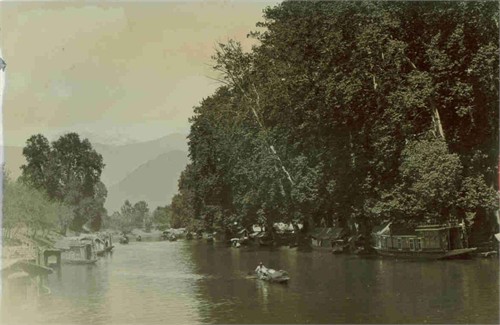Our reporters take us to literary festivals in Brazil, to celebrations of Women in Translation month in Austin, Texas, and to Kashmir, where the voices of writers and journalists are revealing the urgency and importance of communication, free speech, and speaking out against injustice.
Daniel Persia, Editor-at-Large, reporting from Brazil
Identity, colonialism, and immigration were among the main topics discussed at the 7th edition of Litercultura (August 12-16), a week-long literary festival in Curitiba, Brazil. In conversation on this year’s theme, “Borders,” Italian writer and journalist Igiaba Scego explored her own family’s trajectory, tracing her parents’s migration from Somalia to Italy in the wake of Siad Barre’s coup d’état in 1969. Her novel Beyond Babylon—recently released by Two Lines Press, in a stunning English translation by Aaron Robertson—is a multigenerational story that explores the brutal dictatorship in Somalia and the challenges and discrimination still faced by Afro-descendants in Italy today. Scego seemed particularly at home with her Brazilian audience, perhaps because this was not her first time in Brazil; three of her books have been translated into Portuguese, and she was a headliner at the International Literary Festival of Paraty (Flip) in 2018. Other participants at this year’s Litercultura included Patrícia Campos Mello (Brazil), Leonardo Padura (Cuba), Bernardo Carvalho (Brazil), and Juan Cárdenas (Colombia).
While Scego was closing out Litercultura in Brazil’s southern city of Curitiba, the 13th International Book Biennial of Ceará was just getting started, over 2,000 miles away in the northeastern capital of Fortaleza. Under the theme “Cities and Books,” this year’s fair (August 16-25) will unite some of Brazil’s most cherished writers, including Maria Valéria Rezende and Raduan Nassar. The goal of the Biennial is to create space for artistic and literary exhibitions while engaging the wider public in conversations around books, literature, and literacy. In ten full days of programming, the Biennial will welcome over sixty authors, including international writers such as Mia Couto (Mozambique) and former Asymptote contributor Abdellah Taïa (Morocco). Over the past two years, the fair has averaged approximately fifty-five thousand visitors per day, including children, young adult, and adult readers.
Together, Litercultura and the Biennial of Ceará remind us of the sheer size of Brazil, a country that continues to discover new talent within and beyond its borders. READ MORE…



